- Home
- Piers Anthony
Golem in the Gears Page 2
Golem in the Gears Read online
Page 2
He searched the premises, looking for a boat. Naturally there was none. He heard a popping noise and discovered a popcorn plant, but that didn’t help. He took a kernel of the corn on general principles, however; one never could tell when something might be useful in some obscure way.
Then he found a giant snail shell. The snail had long since passed away, but its hollow shell was beautiful, gleaming iridescently. But what use was an empty snail shell?
Suddenly he had a notion. He took hold of the shell and dragged it toward the moat. This was a job, as it weighed more than he did; he could have crawled inside the thing! But that just might be what he needed.
He shoved it to the moat and nudged it in. It floated with the hollow aperture up, and it did not dissolve. He pressed down on it, but it contained a lot more volume of air than he could displace; he could not push it below the surface of the liquid. Good enough again!
Grundy hauled the shell back on shore, then made another tour, locating several long twigs of wood. He brought them back, set them inside the shell, and launched it again. Then he climbed in himself, carefully. It supported his weight. Now he was floating!
He took a twig and used it to pole off from the bank. He settled himself as comfortably as he could inside the shell and used a flattened twig to paddle the craft. He had a snailboat!
Before long, his wooden paddle dissolved, and he had to use another. He had to paddle carefully, so as not to splash any of the acid on himself. Progress was slow, but the moat was not broad; he judged he would make it safely across if he didn’t panic. Just as long as no monster appeared at this stage!
No monster appeared. Monsters didn’t like acid any better than living golems did. An armored serpent might withstand the corrosion, but how would it protect its eyes and mouth?
In due course he nudged his way to a landing inside the moat, and stepped carefully to shore. One hurdle down.
He stood and looked about. He was on a fairly narrow beach between the moat and the wall. The beach curved around the island that was the castle. The wall was vertical and fashioned of flat, polished stone; he could see his reflection in it, but he couldn’t catch so much as a fingerhold for climbing. He would have to walk around until he came to a suitable entrance.
He walked—and soon encountered a large animal. It was a unicorn! There were very few of them in Xanth; they seemed to prefer to range in other pastures. This one was a fairly disreputable-looking creature with a burr-tangled mane and a gnarled horn. It snorted as it spied him and pawed at the sand with a forehoof.
“Hi there, warp-horn,” Grundy said in equine language with his usual politeness. “Why don’t you clean up that stinking coat?”
“I’ll clean up the sand with you, you midget blot,” the unicorn replied with unprovoked bad humor.
Oops—this was evidently another obstacle. “I don’t suppose you’d care to let me pass, so I can go on into the castle,” Grundy said.
“I don’t suppose you’d care to take a bath in the moat,” the unicorn replied in the same tone.
Grundy made as if to scoot under the creature, for there was no room to pass on the side. The unicorn made as if to spear anything that tried that route. It was obvious that he could not get by; the animal was set to prevent it.
The golem stood back and considered. How could he pass a creature who was determined to prevent it and had the ability to enforce the restriction? There had to be a way.
He had a notion. He turned and walked away. He could circle the castle in either direction, and reach the entrance either way. The unicorn did not pursue him, perhaps too stupid to realize what he was doing.
Grundy walked three-quarters of the way around the castle—and stopped. There was the unicorn, facing the other way, horn lowered warningly. Obviously it had backed up to the entrance place, used that wider region to turn, and had come to block this route too. It wasn’t stupid after all; it had known that it couldn’t protect the entrance by chasing the golem around the castle.
Well, maybe he could trick it into letting down its guard. Or make it so mad it miscalculated. Grundy had a rare touch with insults, when he put his beady little mind to it. “Say, founderfoot, did they put you out here so you won’t stink up the inside of the castle?”
“No, they put me out here so you wouldn’t stink it up,” the unicorn replied.
Hm. This might be more of a challenge than he had thought. But Grundy tried again. “Did you get that horn caught in a hole in the ground? No self-respecting creature would carry a broken spear like that!”
“Did you get that body caught in a shrinking violet?” the unicorn responded. “No self-respecting midget would use it.”
“Listen, knot-mane, I’m a golem!” Grundy exclaimed. “I’m supposed to be this size.”
“I doubt it. That body is way too small for that mouth.”
Grundy swelled up to his full diminutive height, ready to spew forth a devastating torrent of abuse—and realized that the unicorn was winning the contest. It was the one that was supposed to be getting mad!
He would have to try some other tack. Well, if he couldn’t beat it, maybe he could join it. “What do you want most in all Xanth?” he inquired.
“To get rid of pesky golems so I can resume my snooze.”
“Apart from that,” Grundy said unevenly.
The unicorn considered. “Well, I do get hungry, and meals are far apart. I’d sure like a nice snack of something good.”
That was more promising. But Grundy wasn’t sure how he could provide such a snack. “If you let me into the castle, maybe I could get you some nice hay or something,” he suggested.
“If I let you into the castle, maybe I’ll get my hide tanned before I’m ready to leave it,” the unicorn said.
“Maybe I could get you a snack without going in,” Grundy said.
“I’d be glad to have a snack without you going in,” the creature agreed.
Somehow that didn’t sound promising. Grundy stared across the moat, where the grass was green and the brush was leafy. Surely there was plenty there to distract the unicorn—but the unicorn couldn’t cross to it, and Grundy himself would not be able to carry enough across in the snailboat to last for more than one mouthful at a time.
He spied a tall green plant that sported several tassles. That jogged his memory. Maybe there was a way!
“What kind of a plant are you?” he called in plant language. The unicorn couldn’t understand that, of course, so it didn’t know what he was doing.
“I am a popcorn plant,” the plant replied proudly. “I have the best popcorn on the bank!”
Grundy turned to the unicorn. “Unicorns don’t like popcorn, do they?”
“Of course they don’t,” the creature agreed, its mouth watering.
Aha! He remembered correctly. Unicorns liked all kinds of corns, because they were magically related.
He returned his attention to the popcorn. “You don’t look like much to me,” he sneered in plant language.
The plant huffed up and turned color. “I’m the top pop!” it proclaimed. “My kernels pop harder than anyone’s!”
“They do not!” Grundy retorted. “I bet they fizzle!”
“Fizzle!” the plant snapped, outraged. Its ears turned an angry red. “I’ll pop off so hard you’ll think it’s an explosion!”
“I think it’s a fake!” Grundy said.
The plant’s corns became so hot that the tassles browned and shriveled, and the leaves around its ears split apart. The kernels popped with the heat, first a few, then many, until it did indeed resemble an explosion. Popcorn puffs flew out in every direction, a number of them arcing over the moat and peppering the castle wall.
“Popcorn!” the unicorn exclaimed, eagerly snatching up the fallen pieces.
“But unicorns don’t like popcorn,” Grundy reminded it.
“Get out of here, golem!” the creature cried angrily.
“As you wish.” Grundy retreated to the unic
orn’s rear, toward the gate, and the creature was so distracted by the delicious popcorn puffs that it didn’t notice. Grundy moved on up to the gate and through it without further opposition. He was inside the castle!
“Very clever, you little morsel,” a voice growled.
Grundy looked, startled. He was in a moderately sized court with a dirt floor, and before him stood an ant lion. The monster could snap him up in a moment, if it wanted to.
“I’m just trying to get in to see the Good Magician on important business,” the golem said nervously.
“Indeed.” The ant lion yawned, showing its enormous feline teeth. It was playing cat-and-mouse with him, knowing that its six insect legs could overtake him anytime. “I doubt you are smart enough to rate any of his time.”
“Sure I am!” Grundy retorted hotly. “I’m just not big enough to get by all you monsters.”
“I will make you a deal,” the ant lion said, stretching languorously. “Prove you are smart, and I will let you pass.”
It was up to something. But Grundy realized he had nothing to lose; he was already in its power. “How do I do that?”
“You play me three games of lines and boxes,” the ant lion said. “If you can defeat me, I’ll let you enter. If you lose, I’ll consume you. That’s very fair, isn’t it?”
Grundy swallowed. He was not entirely pleased with the terms. “Suppose we tie?”
“Then I will let you enter anyway. I can be magnanimous to an intellectual equal. To make it even easier for you, I will even grant you the first move each time.”
Grundy still didn’t like this. But he was aware of two things: first, he really had no choice, as he could not otherwise get in to see the Good Magician, and second, he was a pretty good player of lines and boxes. He could probably win. “I agree,” he said.
“Excellent!” the ant lion said heartily. It leaped suddenly into the air and came down with its six legs straight. It was a fairly massive creature, so each leg sank into the dirt as it landed. It stepped out of its tracks, and six neat depressions remained. Then it jumped again, this time landing a little to the side. The three right legs landed in the dents left by the three left legs before, and the three left legs made three new dents.
The monster stepped carefully back. There before it was a neat pattern of nine dents, forming a large square with one dent in the center. “There is the board,” it announced.
“That’s only enough for four boxes!” Grundy protested.
The ant lion extended a claw and contemplated it. “So?”
Grundy decided not to protest further. A small game was the same as a big one in principle, after all, and he did have the first move. He stepped up and scratched a line with his foot between a corner dent and the center dent on his side.
The ant lion reached across and scraped another line, from Grundy’s center dot to the other corner dot. One side of the figure was complete.
Grundy drew a line from a near corner up to connect to the middle dot on that side. The ant lion made another, completing that side. Grundy drew one along the side closest to the ant, and the ant completed this one also. Then they each put a line in the fourth side. Now the figure was a large box—and Grundy realized he was in trouble.
He had no choice now but to draw a line from the center dot to one of the sides. That would set things up for his opponent to complete a box with his line, and then use his extra turn to complete another box, and so on through the figure, winning. He had been trapped into a game he couldn’t win.
“Move—or forfeit,” the ant lion said with satisfaction.
Grundy sighed and moved. Whereupon the ant lion did exactly as expected, filling in all four boxes and marking his neat letter A’s in each. Grundy had lost badly.
“I think I’ll give you the first move for the next game,” Grundy said.
“By no means,” the ant lion said firmly. “I promised you the advantage of the first move every time, and I am a creature of my word.”
“But—”
The monster extended another claw and studied it significantly. Grundy realized that he had to accept this generosity.
What was he to do? The advantage clearly lay with the second player—and that advantage was going to get him consumed by the monster!
Then Grundy remembered something. There just might be a way! He had not played such small games before, but the principle should hold. The key was in the fact that a player did not have to complete a box if he did not want to, provided he was able to make some other move instead. That seemed like a losing strategy, so it was seldom employed, but it had its points. He would use it here.
They started the second game of their appointed three. Grundy started exactly as he had before, and the ant lion continued as before. They completed two sides of the outer square. Then Grundy made his surprise move: he drew a line to the center.
The ant lion stared. “But you’re giving away a box before you have to!” it protested.
“Nothing in the rules against that, is there?”
The ant lion shrugged with all three sets of shoulders. “Nothing in the rules against foolish moves,” it agreed, and completed the box, marking its A in it. Then it put its bonus line in the opposite side, to avoid giving Grundy a similar gift. Grundy filled in the last free spot. Now the diagram looked like this:
The ant lion got ready to draw his line—and paused. There was nowhere he could move, without setting Grundy up for three boxes and victory. “I’ll be cursed!” it exclaimed. “You set me up!”
“Merely playing the game to win,” Grundy replied modestly.
With imperfect grace, the ant lion drew a line at the edge, and Grundy filled in the rest, marking G’s in three boxes.
The score stood at one victory each. The ant lion was very thoughtful as they commenced the deciding game. This one started as the others had, but when Grundy offered the sacrifice box, the other declined it, choosing instead to continue around the rim. Now Grundy was nervous; could this force the win back to the lion?
Then Grundy saw the other side of the key. He moved in and took the first box himself, and used his bonus line to fill in the last available free space. It didn’t matter which player took the box and the bonus line; that extra line shifted the advantage to the first player. The configuration now was this:
The ant lion stared at it for a long time. Finally it shrugged, and filled in a line. Grundy filled in the remaining three boxes.
“I learned something today,” the ant lion said philosophically. “The ploy of the proffered box, which is disaster whether accepted or declined. I congratulate you, Golem; you have proved yourself to be smart enough to pass.” And the monster stood aside and allowed Grundy to enter the castle.
Grundy’s little knees were weak. In retrospect he realized that the Good Magician had surely known about the way to reverse the game, so that it represented a fair test of ingenuity. But how close he had come to failing that test!
Now he walked through another gate, and there was the veiled Gorgon. “What kept you, Grundy?” she inquired solicitously.
Grundy didn’t have it in him to make a smart reply. “I just want to see the Magician.”
“By all means. But be careful; he’s grumpy today.”
She ushered him into the Good Magician’s office. Humfrey was perched on his high stool, poring over a monstrous tome. That was par for the course. He was now about twelve years old, physically, having recovered that far from the overdose of Youth Elixir he had suffered five years before.
“Magician, I need advice on—” Grundy began.
“Go away,” Humfrey grumped.
“I just want to—”
“One year’s service—in advance.”
This was of course standard procedure for the Good Magician. But Grundy had been shaken by the experience with the ant lion, and his natural manner of expressing himself surged to the fore. “Listen, you rejuvenated freak! You’re such an idiot you’ve missed the obvious for five y
ears! You can be any age you want to, anytime. I can give you back a century of your life, with one sentence. Then you’ll owe me a hundred Answers!”
This got the Good Magician’s full attention. “Prove it.”
“All you have to do is dunk a stick of reverse-wood in a cup of Youth Elixir. Then it will—”
“Become Age Elixir!” Humfrey finished, amazed. “Now why didn’t I think of that?”
“Because you’re an—”
“I heard. Very well, Golem—you’ve earned your Answer. Ask your Question.”
“I’ve earned all the Answers I want!” Grundy exclaimed.
“No. You have done me one service that I may exploit to my satisfaction. How many years I use it for does not relate; it is your year that counts. Ask.”
Grundy realized that the Good Magician, like the ant lion, was a creature of no compromise. At least he had what he wanted.
“How can I find and rescue Stanley Steamer?”
“Oho! You’re doing something about that!” Humfrey glanced at his open book. “It says you must ride the Monster Under the Bed to the Ivory Tower.”
“You mean you had it open to the place all the time?” Grundy demanded indignantly.
“Is that another Question?”
Grundy ground his teeth. The Good Magician didn’t give anything away for nothing, unless the visitor was a Magician. “At least tell me where the Ivory Tower is!”
“Do you want to pay your year’s service before or after I give you that Answer?”
“You gnomish cheapskate!” Grundy raged. “I just gave you back your age, hardly a minute ago!”
Humfrey’s lips quirked. “And what have you done for me lately, Golem?”
Grundy stormed out of the room. The Good Magician hardly noticed; he was back poring over his tome.
2
Snortimer
Back at Castle Roogna, Grundy remained disgruntled. He had belatedly realized that the Good Magician hadn’t even told him that Stanley Steamer was at the Ivory Tower; he had just said to ride the monster there. Who could guess what complications would manifest at that point? On the other hand, Humfrey also hadn’t said that the quest was useless. He might not know for sure whether Stanley was alive, but at least he had enabled Grundy to find out.

 Serial
Serial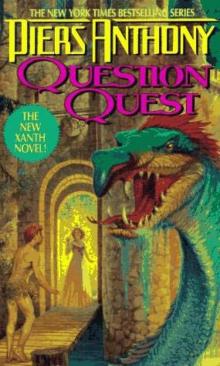 Question Quest
Question Quest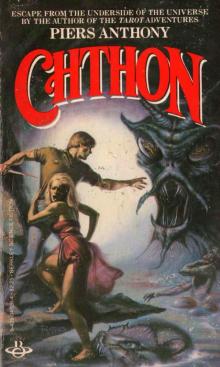 Chthon
Chthon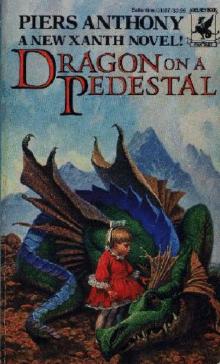 Dragon on a Pedestal
Dragon on a Pedestal E. S. P. Worm
E. S. P. Worm Hope of Earth
Hope of Earth The Series Boxed Set
The Series Boxed Set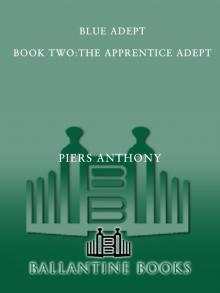 Blue Adept
Blue Adept The Sopaths
The Sopaths Beetle Juice
Beetle Juice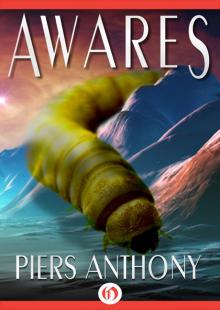 Awares
Awares Golem in the Gears
Golem in the Gears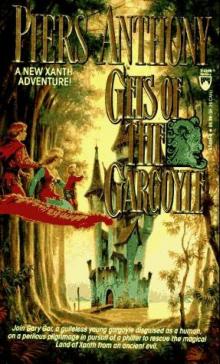 Geis of the Gargoyle
Geis of the Gargoyle Bamboo Bloodbath and Ninja's Revenge
Bamboo Bloodbath and Ninja's Revenge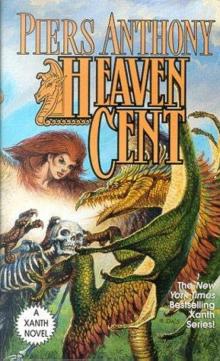 Heaven Cent
Heaven Cent Neq the Sword
Neq the Sword Pandora Park
Pandora Park Juxtaposition
Juxtaposition Bearing an Hourglass
Bearing an Hourglass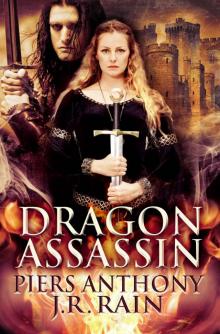 Dragon Assassin
Dragon Assassin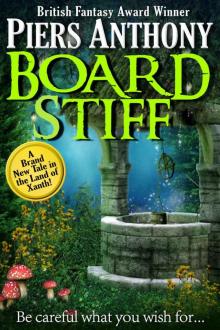 Board Stiff
Board Stiff Virtual Mode
Virtual Mode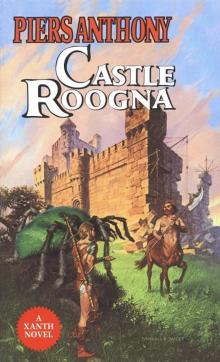 Castle Roogna
Castle Roogna Aliena Too
Aliena Too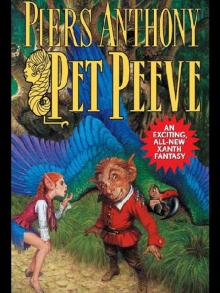 Pet Peeve
Pet Peeve The Metal Maiden Collection
The Metal Maiden Collection Volk
Volk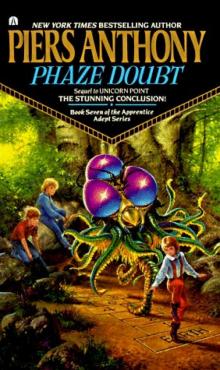 Phaze Doubt
Phaze Doubt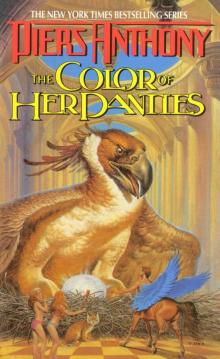 The Color of Her Panties
The Color of Her Panties Amazon Slaughter and Curse of the Ninja Piers Anthony
Amazon Slaughter and Curse of the Ninja Piers Anthony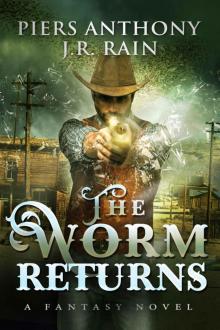 The Worm Returns
The Worm Returns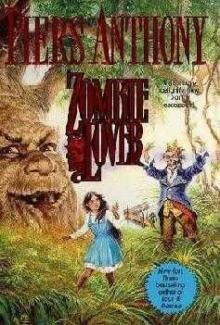 Zombie Lover
Zombie Lover Xone of Contention
Xone of Contention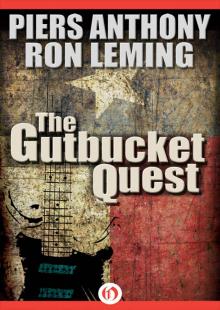 The Gutbucket Quest
The Gutbucket Quest Split Infinity
Split Infinity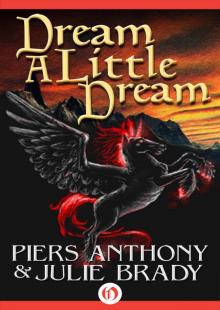 Dream a Little Dream: A Tale of Myth and Moonshine
Dream a Little Dream: A Tale of Myth and Moonshine Balook
Balook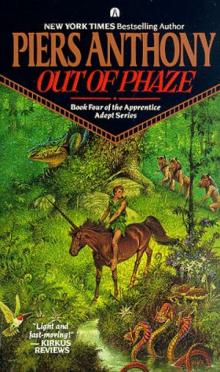 Out of Phaze
Out of Phaze The Secret of Spring
The Secret of Spring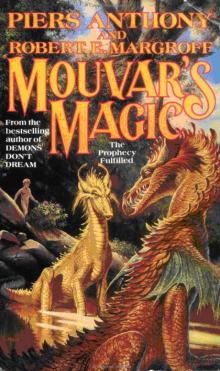 Mouvar's Magic
Mouvar's Magic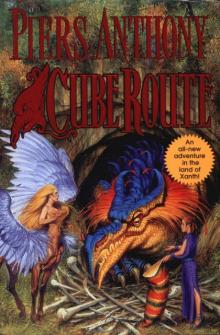 Cube Route
Cube Route Mercenary
Mercenary Total Recall
Total Recall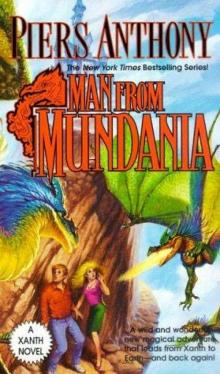 Man From Mundania
Man From Mundania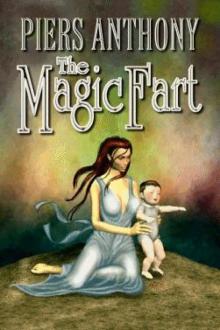 The Magic Fart
The Magic Fart Letters to Jenny
Letters to Jenny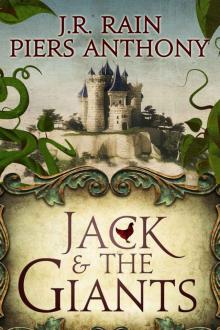 Jack and the Giants
Jack and the Giants Executive
Executive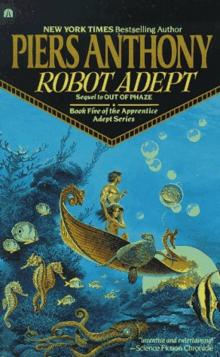 Robot Adept
Robot Adept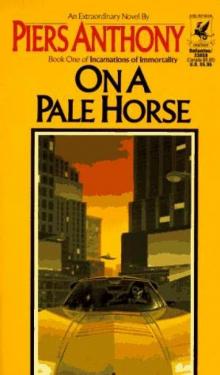 On A Pale Horse
On A Pale Horse Vale of the Vole
Vale of the Vole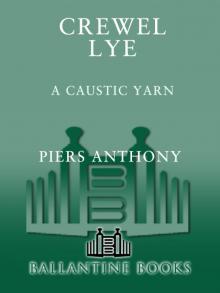 Crewel Lye
Crewel Lye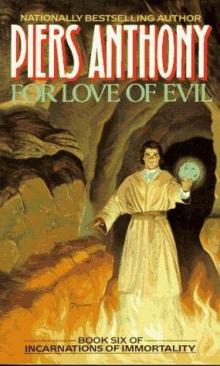 For Love of Evil
For Love of Evil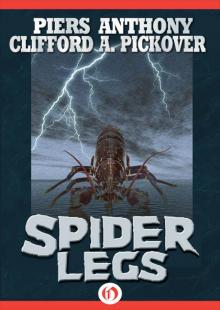 Spider Legs
Spider Legs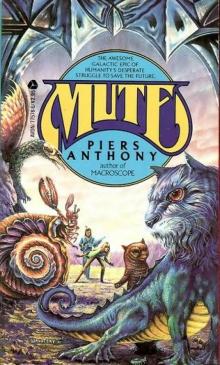 Mute
Mute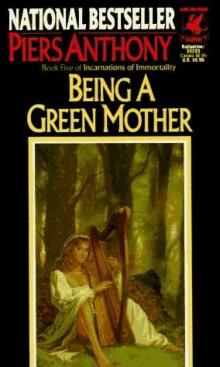 Being a Green Mother
Being a Green Mother Hair Suite
Hair Suite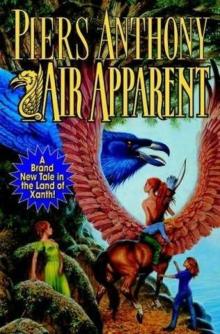 Air Apparent
Air Apparent Politician
Politician Aliena
Aliena Phthor
Phthor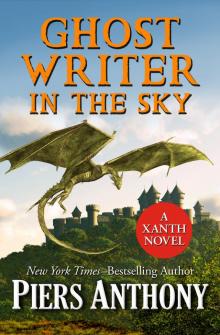 Ghost Writer in the Sky
Ghost Writer in the Sky Pornucopia
Pornucopia Eroma
Eroma Shepherd
Shepherd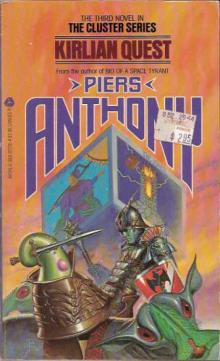 Kirlian Quest
Kirlian Quest Swell Foop
Swell Foop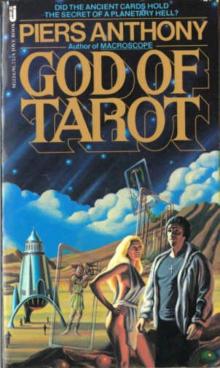 God of Tarot
God of Tarot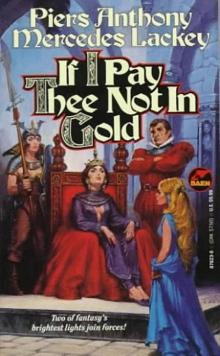 If I Pay Thee Not in Gold
If I Pay Thee Not in Gold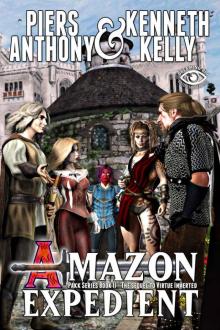 Amazon Expedient
Amazon Expedient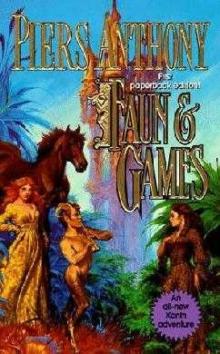 Faun & Games
Faun & Games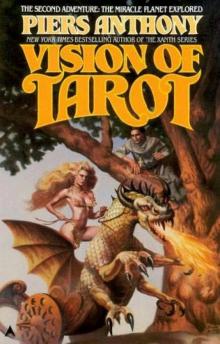 Vision of Tarot
Vision of Tarot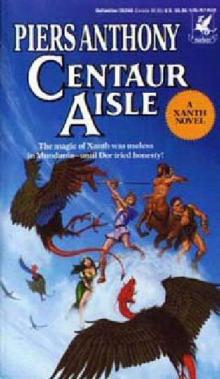 Centaur Aisle
Centaur Aisle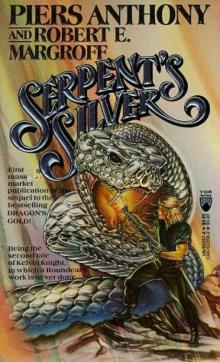 Serpent's Silver
Serpent's Silver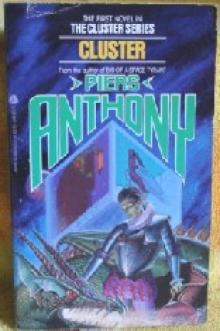 Cluster
Cluster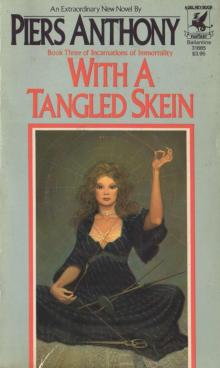 With a Tangled Skein
With a Tangled Skein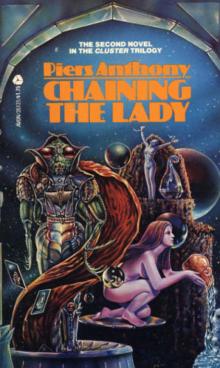 Chaining the Lady
Chaining the Lady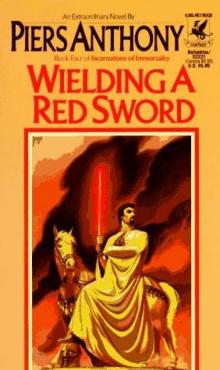 Wielding a Red Sword
Wielding a Red Sword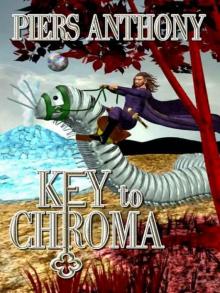 Key to Chroma
Key to Chroma WereWoman
WereWoman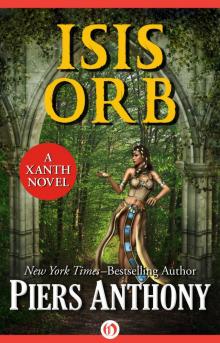 Isis Orb
Isis Orb Hair Peace
Hair Peace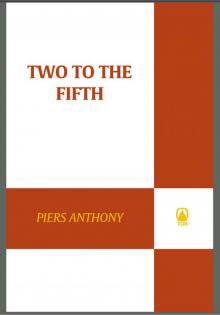 Two to the Fifth
Two to the Fifth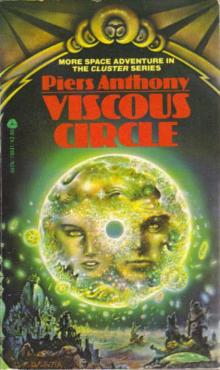 Viscous Circle
Viscous Circle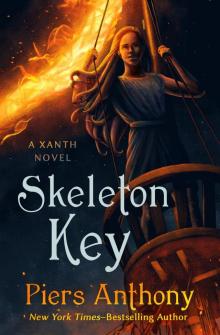 Skeleton Key
Skeleton Key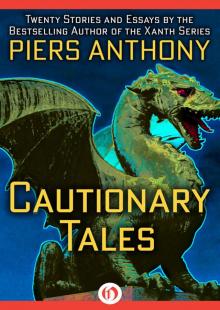 Cautionary Tales
Cautionary Tales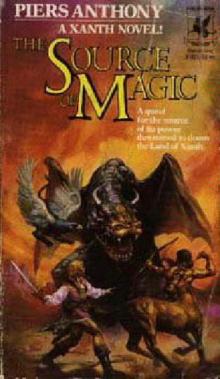 The Source of Magic
The Source of Magic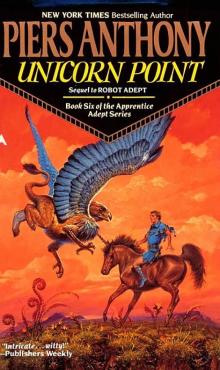 Unicorn Point
Unicorn Point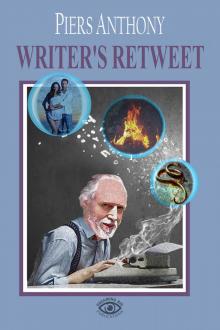 Writer's Retweet
Writer's Retweet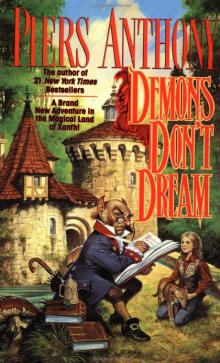 Demons Don't Dream
Demons Don't Dream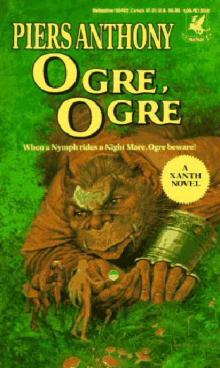 Ogre, Ogre
Ogre, Ogre The Iron Maiden
The Iron Maiden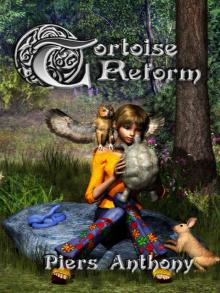 Tortoise Reform
Tortoise Reform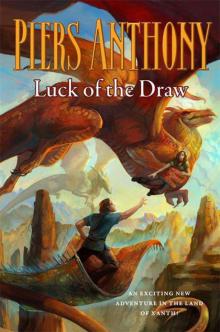 Luck of the Draw
Luck of the Draw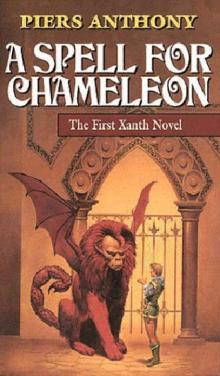 A Spell for Chameleon
A Spell for Chameleon Yon Ill Wind
Yon Ill Wind Currant Events
Currant Events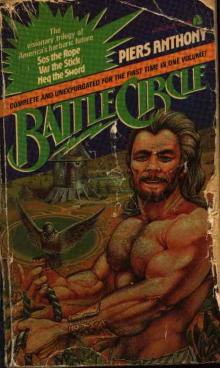 Var the Stick
Var the Stick And Eternity
And Eternity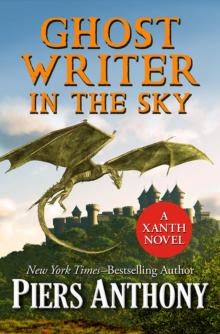 Kiai! & Mistress of Death
Kiai! & Mistress of Death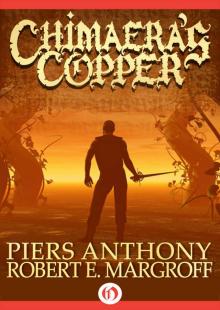 Chimaera's Copper
Chimaera's Copper Refugee
Refugee Isle of View
Isle of View Thousandstar
Thousandstar Mer-Cycle
Mer-Cycle Service Goat
Service Goat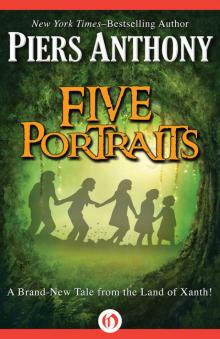 Five Portraits
Five Portraits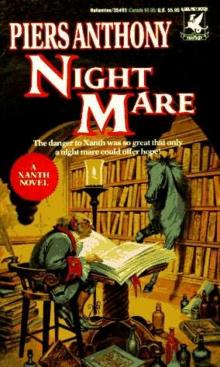 Night Mare
Night Mare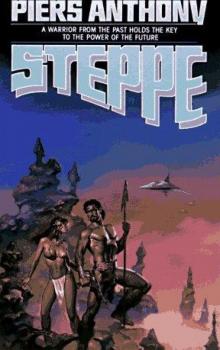 Steppe
Steppe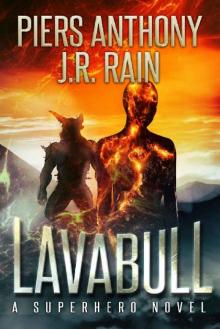 Lavabull
Lavabull Well-Tempered Clavicle
Well-Tempered Clavicle Aladdin Relighted
Aladdin Relighted Aladdin and the Flying Dutchman
Aladdin and the Flying Dutchman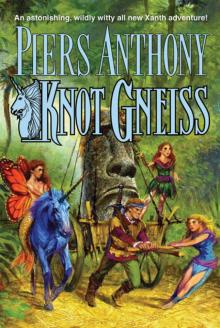 Knot Gneiss
Knot Gneiss Roc and a Hard Place
Roc and a Hard Place Aladdin Sins Bad
Aladdin Sins Bad Flytrap
Flytrap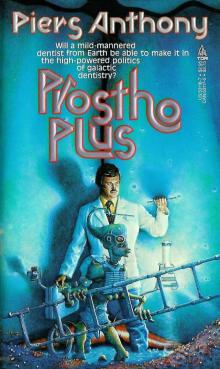 Prostho Plus
Prostho Plus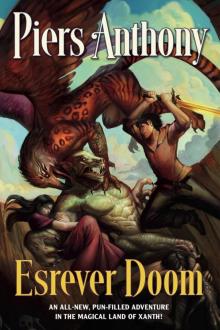 Esrever Doom
Esrever Doom Hair Power
Hair Power The Journey
The Journey Virtue Inverted
Virtue Inverted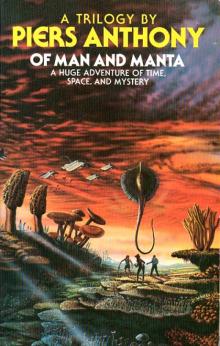 Of Man and Manta Omnibus
Of Man and Manta Omnibus Trail Mix: Amoeba
Trail Mix: Amoeba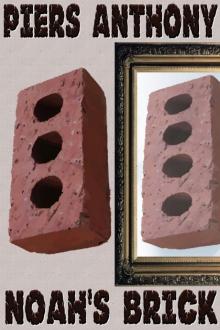 Noah's Brick
Noah's Brick Odd Exam
Odd Exam Magenta Salvation
Magenta Salvation Jest Right
Jest Right Fire Sail
Fire Sail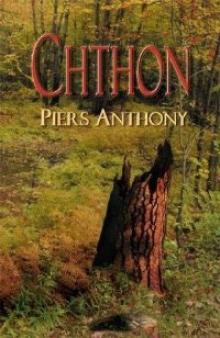 Chthon a-1
Chthon a-1 Amoeba
Amoeba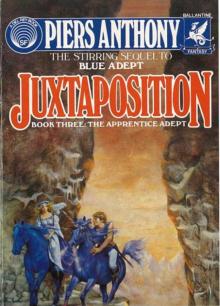 Juxtaposition aa-3
Juxtaposition aa-3 Pira
Pira THE CATERPILLARS QUESTION
THE CATERPILLARS QUESTION What Fears Become: An Anthology from The Horror Zine
What Fears Become: An Anthology from The Horror Zine Bio of a Space Tyrant Vol. 3. Politician
Bio of a Space Tyrant Vol. 3. Politician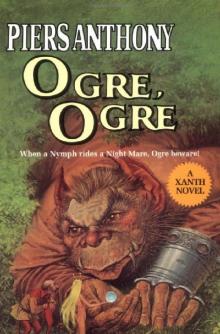 Ogre Ogre x-5
Ogre Ogre x-5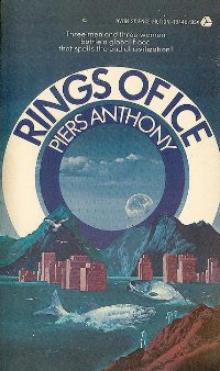 Rings of Ice
Rings of Ice On a Pale Horse ioi-1
On a Pale Horse ioi-1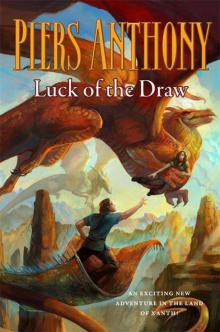 Luck of the Draw (Xanth)
Luck of the Draw (Xanth)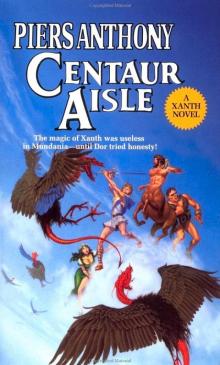 Centaur Aisle x-4
Centaur Aisle x-4 Thousandstar (#4 of the Cluster series)
Thousandstar (#4 of the Cluster series)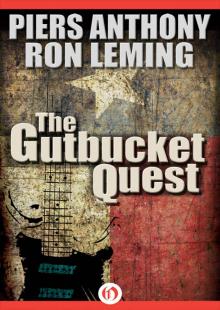 Gutbucket Quest
Gutbucket Quest Isle of Woman (Geodyssey)
Isle of Woman (Geodyssey)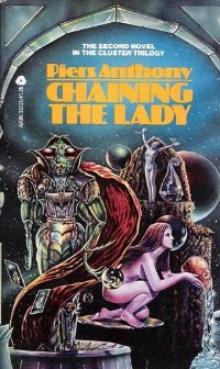 Chaining the Lady c-2
Chaining the Lady c-2 To Be a Woman
To Be a Woman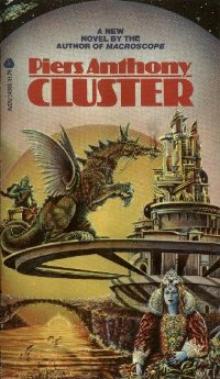 Cluster c-1
Cluster c-1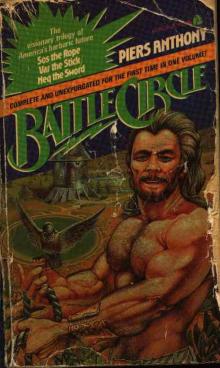 Battle Circle 2 - Var the Stick
Battle Circle 2 - Var the Stick Mercenary (Bio of a Space Tyrant Book 2)
Mercenary (Bio of a Space Tyrant Book 2)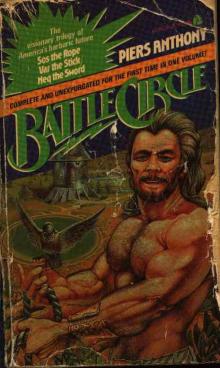 Battle Circle 1 - Sos the Rope
Battle Circle 1 - Sos the Rope Xanth 30 - Stork Naked
Xanth 30 - Stork Naked Secret of Spring
Secret of Spring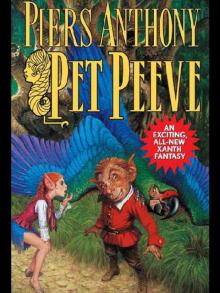 Xanth 29 - Pet Peeve
Xanth 29 - Pet Peeve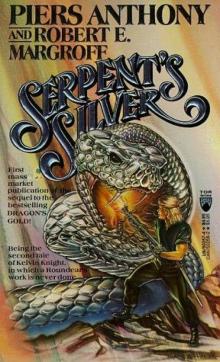 Serpents's Silver
Serpents's Silver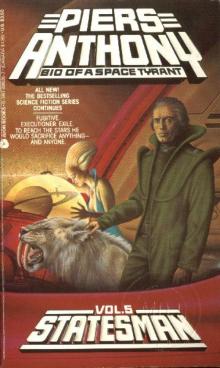 Statesman by Piers Anthony
Statesman by Piers Anthony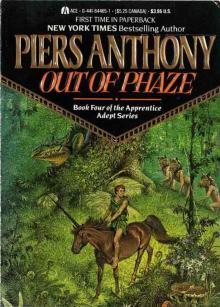 Out of Phaze aa-4
Out of Phaze aa-4 Amazon Slaughter & Curse of the Ninja
Amazon Slaughter & Curse of the Ninja